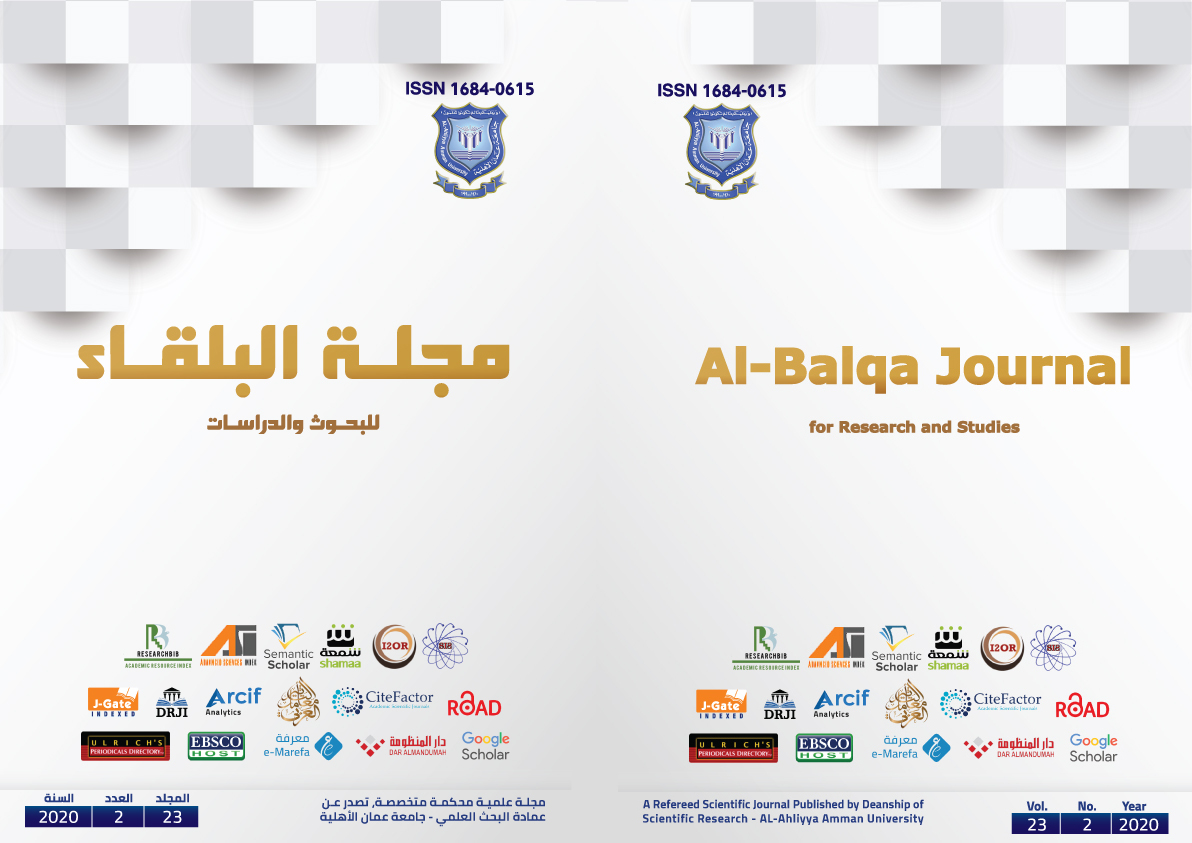Al-Balqa Journal for Research and Studies البلقاء للبحوث والدراسات

Abstract
The study aims at identifying the degree to which the use of modern educational technologies on the quality of education and its development in al-ahliyya Amman university from the viewpoint of faculty members by developing a questionnaire consisting of (20) items which were distributed to a random sample consisting of (198) faculty members. The results of the study showed that the most important modern technologies used in university education are: first, information network (the Internet) with a rate of (18.70%), and second, social networking sites, with a rate of (15.9%). The degree of impact of the use of modern technologies on the quality and development of university education is high in the following areas: (students, school curricula, teacher performance, and college/university administration). It also showed that the areas have positive and statistically significant relations. The most powerful links being the area of improving and developing student learning, while the area of improving and developing the quality of the courses was the weakest and showed that there was no statistically significant difference between the responses of the study on faculty members related to gender, college, academic rank and number of years of work at the university.
Recommended Citation
Badrakhan, Sawsan; Mahmoud, Hafizah Muhammad; Ghnaim, Feda; and Alnaimi, Suleiman
(2020)
"THE DEGREE TO WHICH THE USE OF MODERN EDUCATIONAL TECHNOLOGIES ON THE QUALITY OF EDUCATION AND ITS DEVELOPMENT IN AL-AHLIYYA AMMAN UNIVERSITY FROM THE VIEWPOINT OF FACULTY MEMBERS,"
Al-Balqa Journal for Research and Studies البلقاء للبحوث والدراسات: Vol. 23:
Iss.
2, Article 5.
Available at:
https://digitalcommons.aaru.edu.jo/albalqa/vol23/iss2/5
Included in
Applied Ethics Commons, Banking and Finance Law Commons, Criminology and Criminal Justice Commons, Geography Commons, History Commons, International and Area Studies Commons, Other History of Art, Architecture, and Archaeology Commons, Public Affairs, Public Policy and Public Administration Commons, Reading and Language Commons, Religion Commons, Tourism Commons

